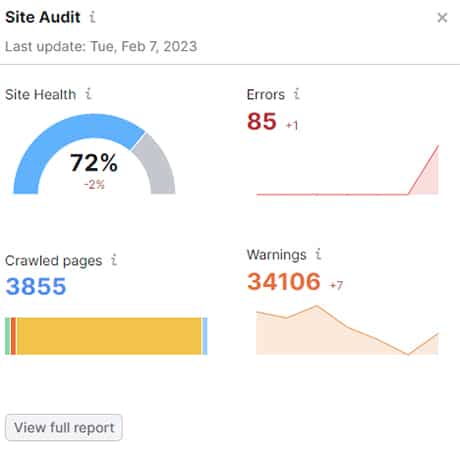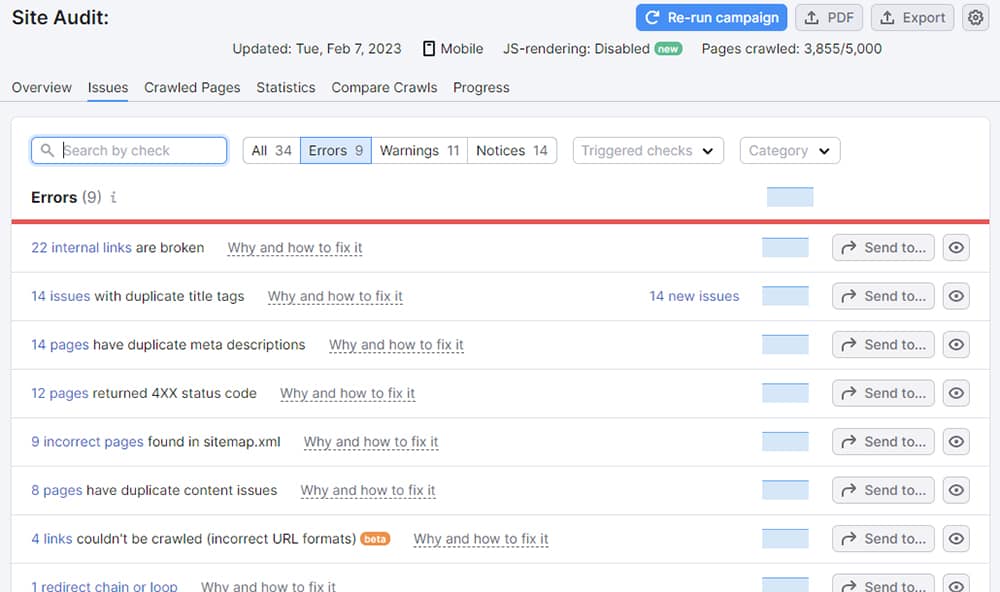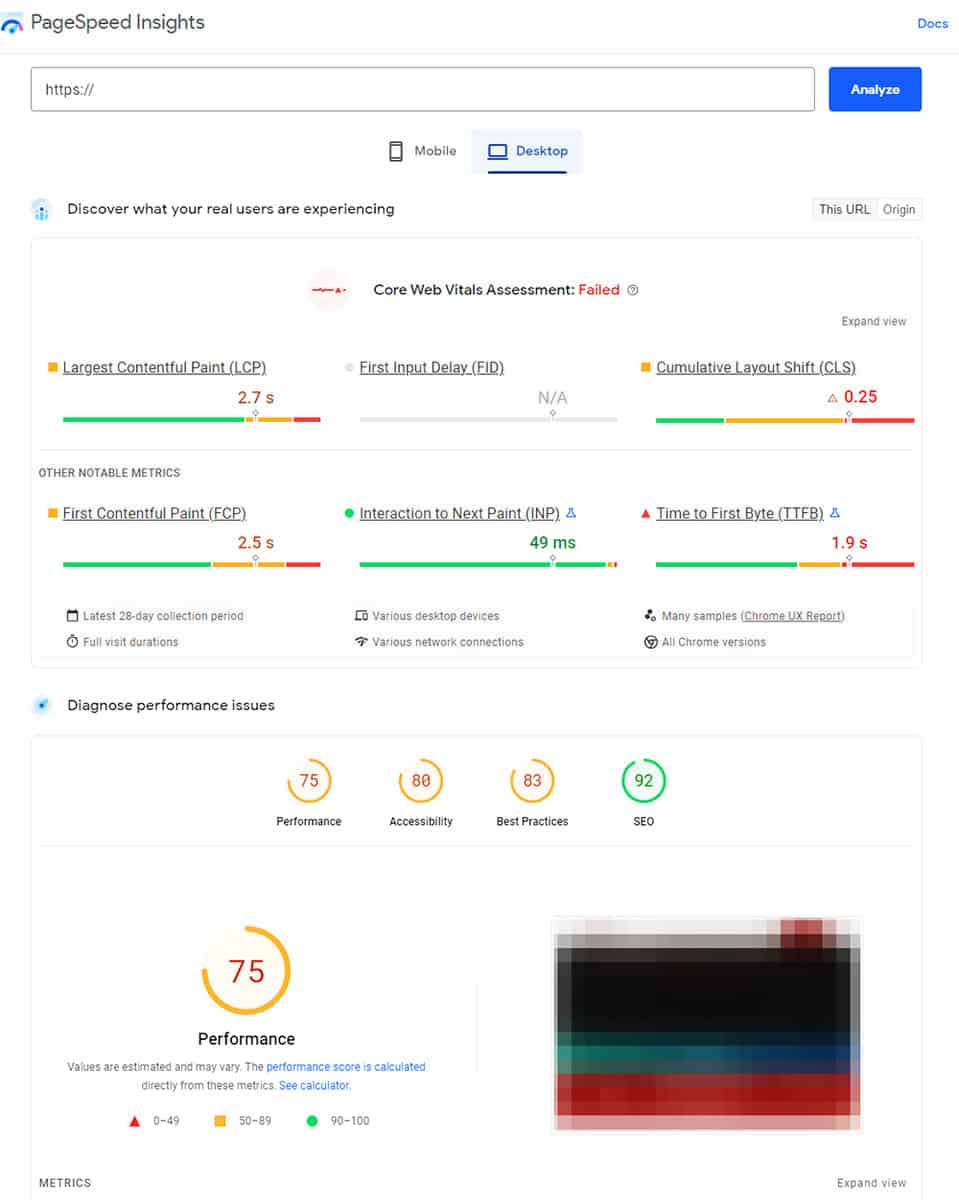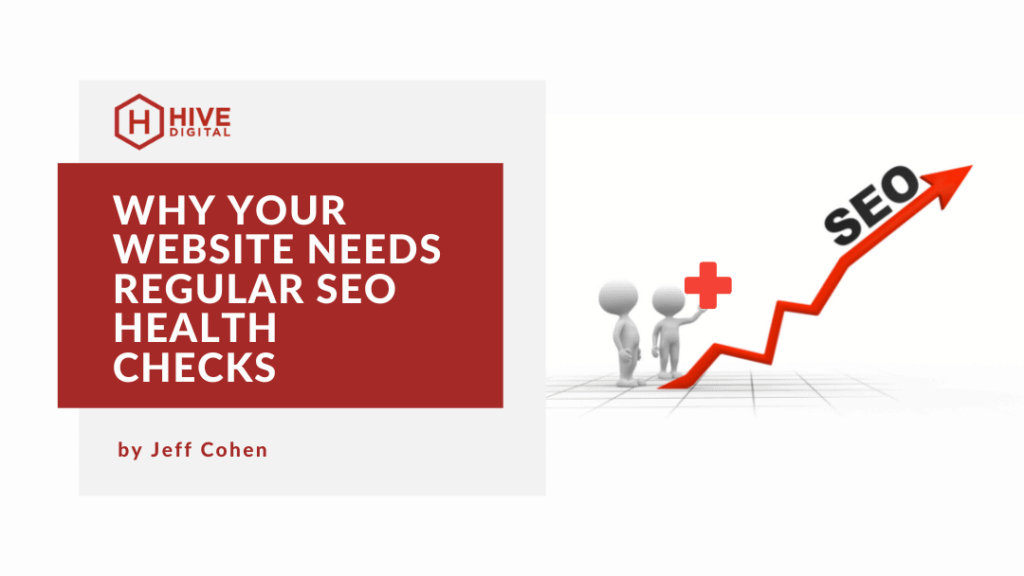Why Your Website Needs Regular SEO Health Checks
These days, the success of many businesses depends in large part on the strength of their online presence. Your website is typically the base of this presence, which is why it is so important to not only build a great experience from the start, but to also maintain that experience with regular technical checks
Through regularly scheduled site audits and content optimization, you can push your business ahead of online search competitors and in turn create more opportunities for yourself.
Why Regular SEO Health Checks Improve Your Website’s Performance
Many website owners are familiar with the term “SEO,” but few understand the full scope of what it encompasses. Search Engine Optimization (SEO) is an important foundation of a comprehensive digital marketing strategy, and regular site health checks are a key part of that “optimization” piece and will be incredibly beneficial for your website. Let’s take a look at a few typical SEO hygiene issues and why they should be addressed.

Scan Your Website for Internal Link Issues
Ultimately, if your site has issues with internal linking then there is a chance search engines won’t find all of your content. Or perhaps you have some orphaned pages that were created and forgotten about (promos, events, email landing pages, etc.) with no active links other than a reference on your sitemap.xml file. Also, keep in mind that an excessive amount of dead/404 or redirected internal links (especially on larger sites) could be wasting your potential crawl budget on empty pages and training the search crawlers to move on prematurely.

Regularly Test Your Site and Page Speed for Issues
A slow site is no fun for search crawlers and more importantly, no fun for visitors. In fact, a few years ago Google decided that user experience was so important they made it one of their ranking factors with the Core Web Vitals update. Whether it’s updating your CMS’s plug-ins, optimizing your JS and CSS files, compressing your image assets, or auditing your hosting situation, there are many ways to keep your site zippy.

Is your Schema Markup Up to Date?
If you don’t use schema for various elements of your site then start there. But even after you’ve got your markup in place, be sure to regularly check for the latest formatting standards and review new content areas that may have been added or were overlooked. Schema markup is a great way to help the search engines understand the context of the type of content on the page and will improve your chances to get indexed for searches based on intent.
Audit and Review Your On Page Content
Cross links, code, UI, and UX are already plenty of reasons to regularly monitor your site’s general health and freshness. But another often overlooked aspect of site health is to look at what’s actually on the page. Make sure you provide a great experience for all visitors by using the alt text attribute on key content imagery, and that any image assets have a function to move users through the site. Test any on page elements like share tools, calculators, booking widgets, etc. to make sure they function as intended. Review any outbound links or cited sources in the event that those sites may have updated their URLs and not set up a proper redirect. And of course, if the content piece is potentially evergreen in nature, review any stats, dates, prices, or general references to make sure they are current and still topical.
Benefits of Regular SEO Health Checks
Regularly conducting an SEO health check for your website can provide numerous benefits. For one, it ensures that your site remains up-to-date with industry best practices and standards. Keeping your site’s code and user experience clean and current can help to improve rankings on the major search engines, which means more visibility for you and more potential customers for your business.
Make On-going SEO Maintenance Part of Your Marketing Initiative
Finally, regular checks help uncover any technical issues or errors with your site, such as broken links or outdated content, before they become too serious. Routine monitoring allows you to proactively address any potential issues related to security or performance before they become a problem down the line.
While all those items may sound daunting, like most things in SEO it’s more about knowing what to look for and due diligence. Years ago I learned how to do basic maintenance items on my car, like change the oil and replace the breaks. I also learned after doing both of those things that I would much rather pay trained professionals at the local autoshop to do it for me. Not just because I’m lazy, but because I knew they would be more efficient and thorough, and both of those things seem pretty important in ensuring an optimal driving experience. Whether you want to get your hands dirty under the hood of your website or connect with our team of digital marketing specialists for the assist, make the most of your online presence today by planning those regular website health audits.










